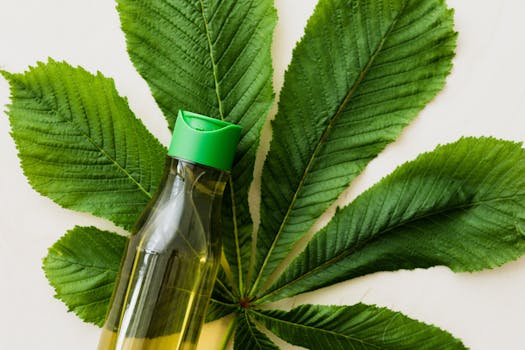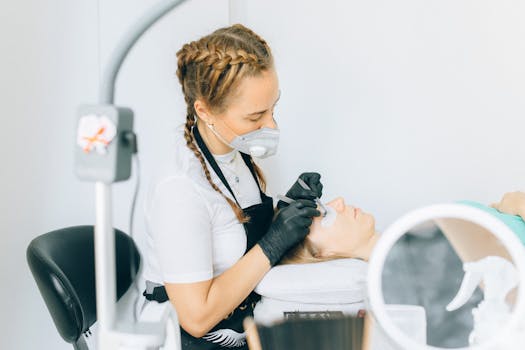
The Rise of Personalized Skincare: Beauty Trends for 2025
Takeaways: As we look towards 2025, personalized skincare is set to dominate the beauty landscape. With advancements in technology, consumers are now able to receive tailored skincare solutions that cater to their unique needs. This article explores the major trends influencing personalized skincare, including AI technology, genetic testing, sustainability, and the growing importance of mental health in beauty. Stay ahead of the curve with insights into what to expect in the coming years.
In recent years, the beauty industry has undergone a seismic shift towards personalization, driven by consumers’ desire for products that cater specifically to their individual skin types and concerns. By 2025, personalized skincare is poised to become the norm, making self-care not just a routine, but a bespoke experience. This post will delve into the key trends that will shape the future of personalized skincare, highlighting innovations that are redefining how we approach beauty.
The Evolution of Skincare Personalization

One of the most significant developments has been the use of artificial intelligence (AI) in the beauty industry. Companies are now utilizing AI algorithms to analyze skin conditions and recommend tailored products. For instance, apps and online platforms allow users to upload photos of their skin. The AI then assesses the condition, identifying issues such as dryness, acne, fine lines, and discoloration, and suggests products that are best suited to the user’s unique skin profile.
In addition to AI, advancements in genetic testing are making it possible for brands to offer skincare that aligns with an individual’s genetic makeup. These tests provide insights into how one’s skin may react to certain ingredients, allowing for a more targeted approach to skincare. This level of customization not only enhances efficacy but also fosters a deeper connection between consumers and brands.
The Role of Technology in Personalized Skincare

For instance, skin analysis devices can be used at home to monitor changes in skin conditions over time. By tracking these changes, consumers can adjust their routines and product choices accordingly. This proactive approach not only empowers consumers but also fosters a sense of ownership over their skincare journey.
Moreover, the rise of teledermatology is making professional skincare advice more accessible than ever. Virtual consultations with dermatologists can provide personalized recommendations based on detailed skin assessments. This democratization of skincare expertise is particularly beneficial for individuals in remote areas or those with limited access to skincare professionals.
Sustainability and Ethical Considerations

Brands that prioritize sustainability are likely to resonate more with consumers, particularly millennials and Gen Z, who are driving the push for environmentally responsible products. The integration of sustainability into personalized skincare not only addresses consumer concerns but also enhances brand loyalty.
Additionally, the use of refillable packaging and biodegradable materials is becoming more common among personalized skincare brands. This not only reduces waste but also encourages consumers to make more sustainable choices in their beauty routines. As we move toward 2025, the intersection of personalization and sustainability will be a defining feature of the skincare landscape.
The Importance of Mental Health in Skincare
In recent years, the conversation around mental health has gained significant traction, and its influence is extending into the beauty industry. Personalized skincare is not just about physical appearance; it’s also about enhancing overall well-being. Consumers are increasingly seeking products that offer a holistic approach to beauty, addressing both skin concerns and mental health.
Brands are responding to this trend by creating skincare routines that promote self-care and mindfulness. This includes incorporating calming scents, natural ingredients, and rituals that encourage relaxation. For instance, products infused with aromatherapy elements can enhance the skincare experience, making it not just a routine but a therapeutic ritual.
The concept of self-care extends beyond products; it includes the entire experience of using skincare. Personalized skincare routines that are tailored to individual preferences can foster a deeper connection to self-care, making the process more enjoyable and fulfilling. As we approach 2025, the emphasis on mental wellness in skincare will continue to grow, reflecting a broader understanding of beauty as a holistic concept.
The Future of Personalized Skincare
As we look to the future, it’s clear that personalized skincare will continue to evolve, driven by consumer demand and technological advancements. The beauty industry is moving towards a model where customization is not just a luxury but an expectation. Brands that can effectively harness technology to offer tailored solutions will be at the forefront of this transformation.
Moreover, the integration of feedback loops will become increasingly important. Brands will need to engage with consumers continuously, adapting their offerings based on customer experiences and preferences. This dynamic relationship will foster brand loyalty and ensure that products meet the ever-changing needs of consumers.
As we approach 2025, the convergence of technology, sustainability, and mental health will shape the landscape of personalized skincare. Brands that prioritize these elements will not only thrive but will also drive the industry towards a more responsible and consumer-centric future.
Conclusion





